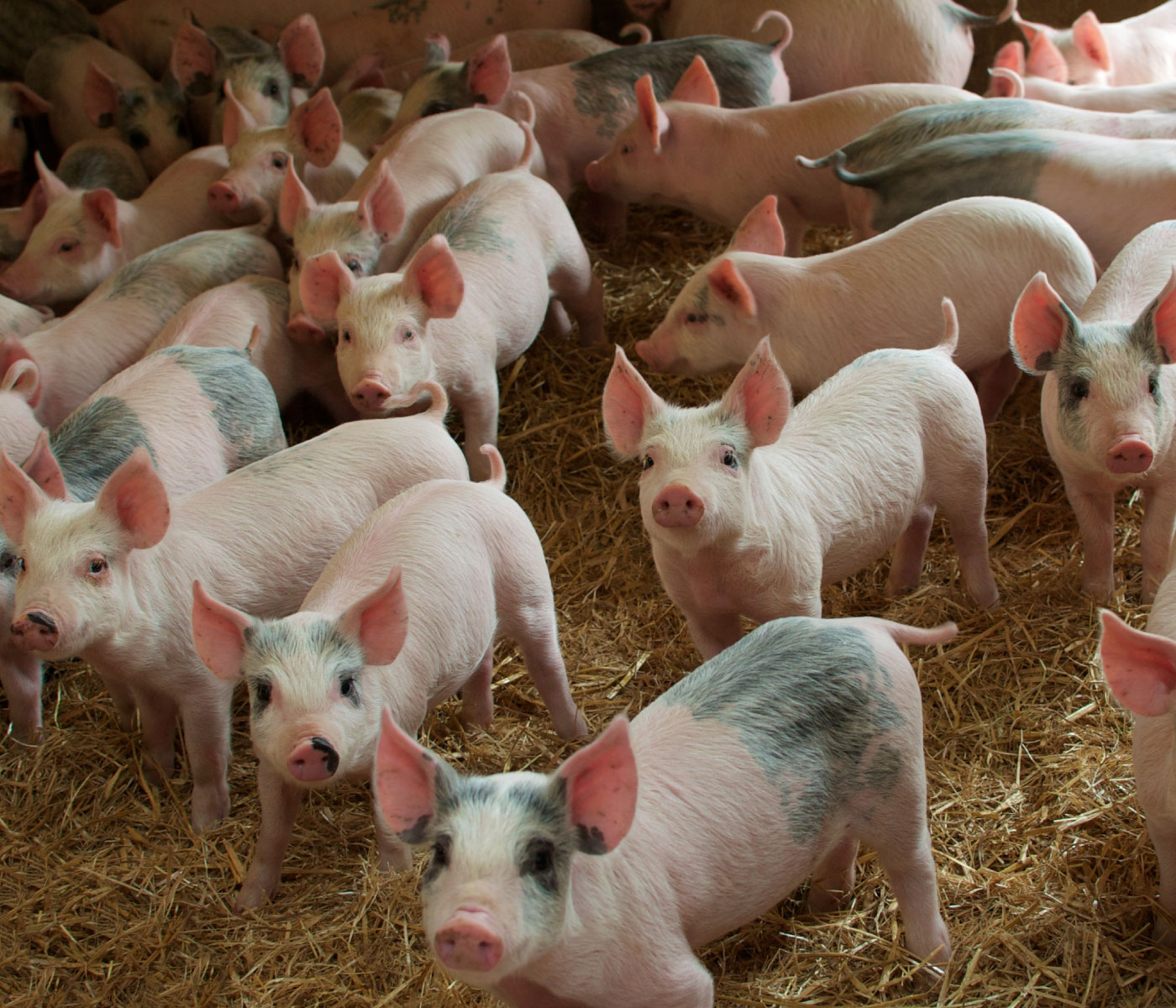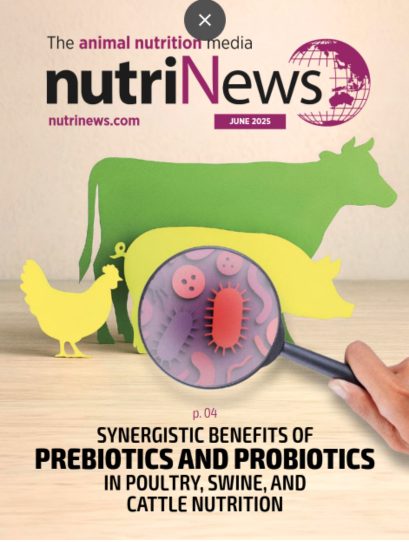Resilience is a key characteristic for pigs to reach their production potential under commercial conditions. Advanced nutritional strategies could play a role in supporting resilience in pigs and new technologies are paving the way to better monitor improvements in resilience. In the future this could help to demonstrate how optimizing nutrition for resilience can have further benefits for pig welfare and farm economics.
The need for enhanced resilience
Studies have shown that pigs within a commercial grow-finish environment only achieve 70% of their growth potential compared to pigs reared in a less challenging research environment. However, there are indications that this 30% gap in performance can be closed by increasing the capacity of pigs to cope and recover quickly from stressors. In other words, breeding and managing for resilience in pigs could increase the potential for greater performance under commercial conditions than what is currently achieved. Furthermore, the potential benefits for animal welfare and farm economics are not to be neglected.
Resilience in livestock refers to the ability of animals to be minimally affected by stressors and quickly return to their optimal production level.
Several disciplines in pig production, including genetics, veterinary sciences and nutrition are striving to find ways to positively influence resilience in pigs. There are two reasons for that:
- On the one hand, developments such as the need to reduce the use of antibiotics, climate change, animal welfare concerns and a shortage in farm labour are increasing the need for resilient farm animals.
- On the other hand, continuous breeding for improved animal performance has been shown to reduce the resilience of farm animals
Consequences of resilience for animal welfare
Short-term challenges to the pig can reduce its welfare. Therefore, managing and breeding the pig for improved adaptability and for resilience will contribute to higher welfare outcomes. However, as Grosse and Mueller (2018) and others warn, it should not be seen as a substitute for good housing and good management practices in farm animal production systems.
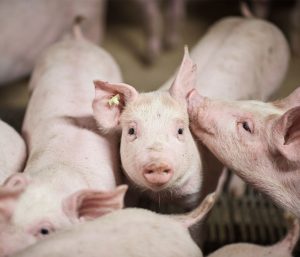
Economic value of resilience
 Researchers suggest that the economic value of resilience can be based on labour costs associated with observing animals that show signs of disease or other problems. A reduction in time spent on an animal with an alert will reduce costs associated with labour. These could be visual signs or alerts generated by sensors or automatic feeding systems. Labour time is limited. As a result, farmers have a requirement for healthy and easy-to-manage animals, especially when the number of animals per farm employee is increasing.
Researchers suggest that the economic value of resilience can be based on labour costs associated with observing animals that show signs of disease or other problems. A reduction in time spent on an animal with an alert will reduce costs associated with labour. These could be visual signs or alerts generated by sensors or automatic feeding systems. Labour time is limited. As a result, farmers have a requirement for healthy and easy-to-manage animals, especially when the number of animals per farm employee is increasing.
Feeding for resilience in pigs
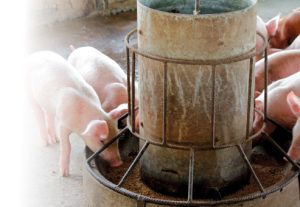 Quite often the first noticeable change in response to stressors is a reduction in feed intake. However, there are also other reactions at a cellular and gut level of the pig, such as oxidative stress and inflammation that further reduce the energy available for growth and production as they increase the requirements for maintenance energy. Ultimately, the pig´s capacity to adapt efficiently will determine the extent of those stress reactions, the recovery of the pig and the impact they have on productivity over time.
Quite often the first noticeable change in response to stressors is a reduction in feed intake. However, there are also other reactions at a cellular and gut level of the pig, such as oxidative stress and inflammation that further reduce the energy available for growth and production as they increase the requirements for maintenance energy. Ultimately, the pig´s capacity to adapt efficiently will determine the extent of those stress reactions, the recovery of the pig and the impact they have on productivity over time.
 Many herbs and spices contain high levels of components with strong anti-oxidative and anti-inflammatory power and new research methodologies are increasing the understanding of how those components can work alone and in concert at the cellular level in pigs.
Many herbs and spices contain high levels of components with strong anti-oxidative and anti-inflammatory power and new research methodologies are increasing the understanding of how those components can work alone and in concert at the cellular level in pigs.
Considering that bioactive substances from herbs and spices have been proven to reduce oxidative stress and inflammatory responses at different production stages in pigs, they could also have the potential to support the adaptive capacity and resilience in pigs.
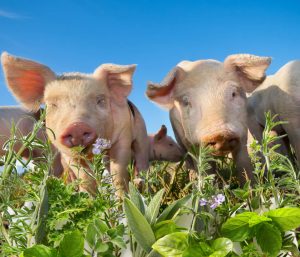
However, further research trials are required to establish whether those type of components impact recognized production measurements for resilience in pigs on farms and can thus help to optimize diets for increased resilience in pigs.
Measuring resilience in pigs
Resilience affects the pig’s response to changes in its production status (e.g. start of lactation or weaning) as well as challenges in its environment and diet. However, our ability to influence and improve resilience in pigs depends on knowing how to measure it in the field.
Measurements at a single time-point in response to a stressor tell us little about an animal’s resilience to a given stressor since by its definition resilience involves dynamic patterns of response and recovery. Therefore, repeated measurements over time are key to determine resilience in farm animals.
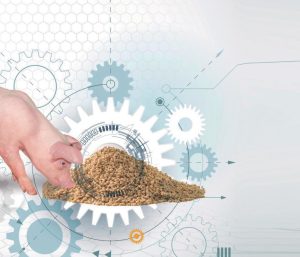
New technologies, such as automated feeding systems, sensors and computer vision are greatly facilitating the ability of producers to collect data from repeated individual measurements in pigs on farm. This paves the way for successfully monitoring improvements in resilience in pigs under practical conditions.o
Several research groups have taken different approaches to measuring resilience in pigs. For example, some are using behavioural data and others are using production data. What they all have in common is, that they are recording repeated observations to detect the number of fluctuations or deviations from an expected standard over time.

Genetic researchers in the US confirmed that fluctuations in feed intake or the duration at the feeder over time are indicators for resilience in grow-finishing pigs and can be used as a heritable measure of general resilience in pigs. In those trials the collection of the data on weight, feed intake and feeding behaviour in pigs was facilitated by automated feeding stations. With an increasing number of pig farms investing into automatic feeding systems it could also be feasible to measure resilience under practical commercial conditions on pig farms.
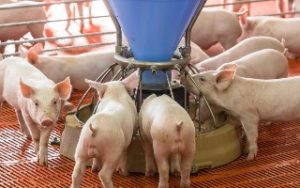
Conclusions
Research so far has been applying new parameters and protocols to measure resilience for genetic selection programs. Further research is required to evaluate promising nutritional strategies for their capability to enhance resilience in pigs effectively under commercial conditions using the recently established parameters and protocols. This could potentially contribute to advancing diets from a cost-efficient perspective and further increase the potential to boost pig welfare, if pig diets can be optimized successfully to enhance resilience.

